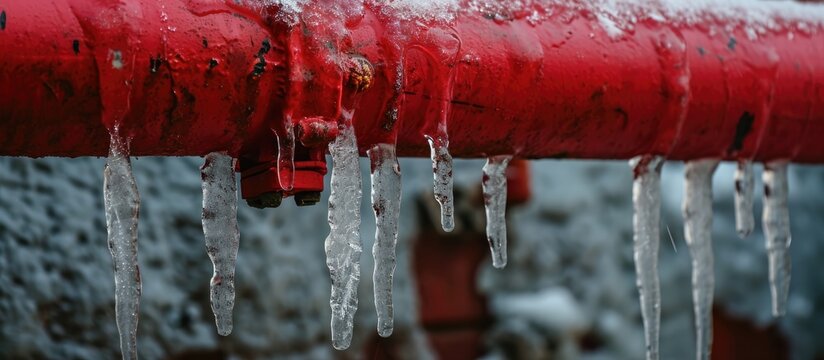How to Safeguard Your Pipes from Cold Weather: Expert Guidance
How to Safeguard Your Pipes from Cold Weather: Expert Guidance
Blog Article
What are your ideas with regards to Preventing and dealing with frozen pipes?

Winter can damage your plumbing, especially by freezing pipes. Below's how to prevent it from occurring and what to do if it does.
Intro
As temperature levels decrease, the danger of icy pipes boosts, potentially causing pricey fixings and water damage. Understanding how to prevent frozen pipelines is vital for home owners in chilly environments.
Recognizing Icy Pipes
What causes pipelines to ice up?
Pipelines ice up when revealed to temperatures below 32 ° F (0 ° C) for prolonged periods. As water inside the pipes ices up, it broadens, putting pressure on the pipeline wall surfaces and possibly creating them to break.
Risks and damages
Frozen pipelines can result in water system interruptions, property damage, and expensive repairs. Ruptured pipes can flooding homes and cause extensive structural damage.
Signs of Frozen Pipes
Recognizing icy pipes early can avoid them from rupturing.
Exactly how to recognize icy pipes
Seek decreased water flow from taps, uncommon odors or noises from pipelines, and visible frost on subjected pipelines.
Avoidance Tips
Insulating at risk pipelines
Cover pipelines in insulation sleeves or utilize warm tape to secure them from freezing temperature levels. Focus on pipelines in unheated or exterior areas of the home.
Home heating strategies
Maintain interior spaces appropriately heated up, particularly areas with pipes. Open up cabinet doors to permit warm air to distribute around pipelines under sinks.
Securing Exterior Plumbing
Garden hoses and outdoor taps
Detach and drain yard pipes before winter. Set up frost-proof spigots or cover exterior faucets with shielded caps.
What to Do If Your Pipes Freeze
Immediate activities to take
If you think icy pipes, keep faucets available to eliminate pressure as the ice thaws. Make use of a hairdryer or towels soaked in hot water to thaw pipelines gradually.
Long-Term Solutions
Architectural changes
Consider rerouting pipelines away from outside walls or unheated areas. Include additional insulation to attic rooms, cellars, and crawl spaces.
Updating insulation
Purchase high-quality insulation for pipes, attic rooms, and walls. Appropriate insulation aids maintain regular temperatures and decreases the threat of icy pipes.
Final thought
Preventing frozen pipes requires positive procedures and fast feedbacks. By understanding the causes, indications, and preventive measures, house owners can shield their pipes throughout cold weather.
Helpful Tips to Prevent Frozen Pipes this Winter
UNDERSTANDING THE BASICS: WHY PIPES FREEZE AND WHY IT’S A PROBLEM
Water freezing inside pipes is common during the winter months, but understanding why pipes freeze, and the potential problems it can cause is crucial in preventing such incidents. This section will delve into the basics of why pipes freeze and the associated problems that may arise.
THE SCIENCE BEHIND FROZEN PIPES
When water reaches freezing temperatures, it undergoes a physical transformation and solidifies into ice. This expansion of water as it freezes is the primary reason pipes can burst. As the water inside the pipe freezes, it expands, creating immense pressure on the walls. If the pressure becomes too great, the pipe can crack or rupture, leading to leaks and water damage.
FACTORS THAT CONTRIBUTE TO PIPE FREEZING
Low Temperatures: Extremely cold weather, especially below freezing, increases the risk of pipes freezing. Uninsulated or Poorly Insulated Pipes: Pipes located in unheated areas, such as basements, crawl spaces, or attics, are more prone to freezing. Insufficient insulation or lack of insulation altogether exacerbates the problem. Exterior Wall Exposure: Pipes running along exterior walls are susceptible to freezing as they encounter colder temperatures outside. Lack of Heating or Temperature Regulation: Inadequate heating or inconsistent temperature control in your home can contribute to frozen pipes. PROBLEMS CAUSED BY FROZEN PIPES
- Pipe Bursting: As mentioned earlier, the expansion of water as it freezes can cause pipes to burst, resulting in significant water damage.
- Water Damage: When pipes burst, it can lead to flooding and water damage to your property, including walls, ceilings, flooring, and personal belongings.
- Structural Damage: Prolonged exposure to water from burst pipes can compromise the structural integrity of your home, leading to costly repairs.
- Mold and Mildew Growth: Excess moisture from water damage can create a favorable environment for mold and mildew growth, posing health risks to occupants.
- Disrupted Water Supply: Frozen pipes can also result in a complete or partial loss of water supply until the issue is resolved.
WHY CERTAIN PIPES ARE MORE PRONE TO FREEZING
- Location: Pipes located in unheated or poorly insulated areas, such as basements, crawl spaces, attics, or exterior walls, are at higher risk of freezing.
- Exterior Pipes: Outdoor pipes, such as those used for irrigation or exposed plumbing, are particularly vulnerable to freezing as they are directly exposed to the elements.
- Supply Lines: Pipes that carry water from the main water supply into your home, including the main water line, are critical to protect as freezing in these lines can affect your entire plumbing system.
- Underground Pipes: Pipes buried underground, such as those connected to sprinkler systems or outdoor faucets, can be susceptible to freezing if not properly insulated.
https://busybusy.com/blog/helpful-tips-to-prevent-frozen-pipes-this-winter/

As an enthusiastic reader about How To Avoid Freezing Pipes, I was thinking sharing that piece of writing was a good idea. Are you aware of somebody else who is fascinated about the topic? Why not share it. I cherish your readership.
Click Here To Find Out More Report this page